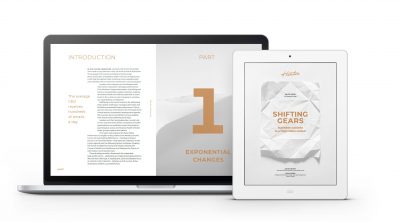4 Ways to Improve Your Thinking With Food
People tend to recognize the association between diet and health or diet and weight quite well. However, the effects of food on thinking and the brain are less known. What you eat during your workday can have a big impact on your vitality and cognitive functions, and hence performance in the daily challenges.
In the bigger picture, this ignorance might lead to an unwanted drop in productivity, if your daily food choices don’t support vitality at work. Together with a fellow registered dietitian Reijo Laatikainen I have written an entire book about healthy food choices at the office, but here are four simples ways you can start improving your eating habits and through that your performance at work.
1. Start your day with a hearty breakfast
Eating a breakfast enhances cognition, especially memory functions, compared to skipping breakfast. The precise ingredients for a cognition-enhancing breakfast are still somewhat unclear. However, most people benefit from having a good protein source as part of their breakfast as well as including a bit of fruit, berries and quality fat and carbohydrate sources such as nuts, seeds, avocado and whole grain products. Also, the quality of your breakfast can have an impact on your food choices during the rest of the day. Eating a good breakfast makes it easier to choose a healthy lunch which in turn has a big impact on vitality in the afternoon. When it comes to making your breakfast hearty enough, my advice is that most people benefit from increasing the breakfast size by 1/3 from their current portion.
2. Eat lunch – always
Even if you don’t notice the impact of skipping lunch on your work performance right away just wait until late afternoon. Without any lunch, your motivation and mood go down, even if there is still many hours of potential efficient work time left.
The quality of your lunch is perhaps the most important dietary factor behind a good cognitive performance during work days. You are probably familiar with the concept of having a “food coma” after lunch. This “food coma” may take up 2-3 hours of efficient work time if you don’t pay attention to the quality of your lunch. To maintain your work performance, remember to:
- Avoid massive lunch size – especially if you are not used to big meal size, you are likely to suffer the greatest drop in vigilance after a big lunch. Try replacing some heavier food choices with vegetables and legumes. When it comes to lunch size, most people benefit from decreasing lunch size by 1/3 from their current portion.
- Have balance at your plate: always remember to include good protein source such as a fistful of fish, lean meat, egg or legumes to your meal. Avoid very fatty lunches and lots of low-fibre carbohydrate sources at lunch. The possible mechanisms behind an unbalanced lunch dropping alertness vary from changes in blood sugar level to changes in serum amino acid tryptophan level and inflammatory responses to food.
- Always include a lot of cooked or fresh vegetables and some oil (and vinegar) as dressing to control the post-meal blood glucose rise. For blood sugar purposes you might also want to eat some vegetables even before the main course. You might also consider some berries as a dessert for the same purpose.
3. Hydrate throughout the day
Even mild dehydration can decrease your cognitive functions and affect your mood and energy levels. Mild dehydration – 0,7-2% of body mass – can accumulate easily during a busy workday, especially when it’s hot or during increased physical activity or movement. To avoid dehydration learn to start your day with one or two glasses of water and remember to drink at least a few glasses also during the workday. Try carrying a water bottle with you or keeping a pitcher at your work desk as a reminder to finish it off before heading home. Skip drinks that include sugar such as regular soft drinks, energy drinks, fruit juices, sugar or honey sweetened coffee and tea drinks.
4. Consider how coffee affects your days but also your evenings
Caffeine does increase alertness post-dose. Exploit the advantages without the possible disadvantages of “over-dosing”. Drink a cup of coffee in the morning and another after lunch to avoid sleepiness related to post-meal and post-awakening. Consider having that cup right before an important presentation or meeting to increase alertness and performance. Already one serving, i.e. a cup of coffee, increases alertness so there’s no need to drink several cups at once. Especially if you have delayed sleep latency or any difficulties with sleep quality try to decrease overall coffee intake during the day and to avoid coffee entirely after 1 pm as caffeine takes a surprisingly long time to exit your body. Do note that several sorts of tea, some soft drinks and even dark chocolate include caffeine. However, the flavanols in cocoa found in unsweetened cocoa powder and dark chocolate might give a quick boost to your cognition.

Following these four action points, you can boost your performance at work. Start now and benefit immediately! When considering the whole diet pattern, having a regular meal rhythm throughout the day and following “a Mediterranean diet” that includes healthy fats from fish, nuts, seeds and oils, plenty of vegetables, fruits, berries and legumes as well as whole grains and poultry, is beneficial to the human brain and to health overall. From Hintsa’s recent white paper Shifting Gears, you can find other ways to improve your cognitive abilities besides food.
Towards a more productive workday, one spoonful at a time!

Read previous
The Secret to Successful Behavioural Change

Read next
4 Steps for Making Change Sustainable

Contact
